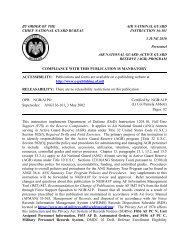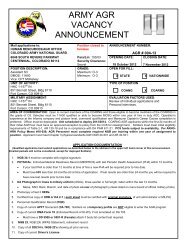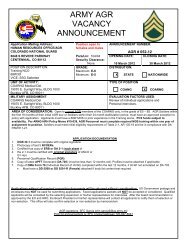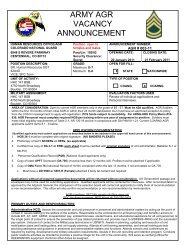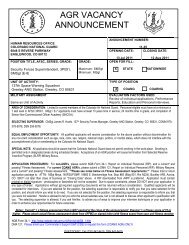Prosecuting Alcohol-Facilitated Sexual Assault - National District ...
Prosecuting Alcohol-Facilitated Sexual Assault - National District ...
Prosecuting Alcohol-Facilitated Sexual Assault - National District ...
You also want an ePaper? Increase the reach of your titles
YUMPU automatically turns print PDFs into web optimized ePapers that Google loves.
T HREE-STEP P R OCESS<br />
Too often,AFSA cases are lost due to improper charging decisions or<br />
investigations that are inadequate to support the charging decision that<br />
was made.The investigation and prosecution of AFSA where the victim is<br />
voluntarily intoxicated can be broken down into the following three-step<br />
process: (1) making the charging decision; (2) analyzing credibility and<br />
corroboration; and (3) trying the case.The steps are explained ad seriatim.<br />
Step 1: Making the Charging Decision 21<br />
The most important step in successfully prosecuting AFSA where the victim<br />
is voluntarily intoxicated is making the correct charging decision. 22 A<br />
prosecution cannot succeed if the charges have not been properly filed.<br />
When beginning to analyze whether charges should be filed, the prosecutor<br />
should assume that the victim’s version of events and any supporting<br />
evidence is true and accurate.Analysis of credibility and corroboration<br />
will occur in step two, but prosecutors should start with the best possible<br />
case scenario. If the elements of the crime cannot be proven when this<br />
assumption is made, the prosecutor ultimately will not succeed at trial.<br />
To begin, the prosecutor should determine which theory of sexual assault<br />
to allege.Three potential charging theories exist for proving sexual assault<br />
of a voluntarily intoxicated victim. 23 First, sexual assault can be proven in<br />
the traditional way by demonstrating that the defendant had intercourse<br />
with a victim without consent by using force or the threat of force. In<br />
these cases, the victim is intoxicated but proof of the level of intoxication is<br />
not an element of the crime. Intoxication is only relevant to the victim’s<br />
credibility and vulnerability. Second, sexual assault can be proven by showing<br />
that the victim was unconscious at the time of the rape and therefore<br />
could not consent. 24 Third, sexual assault can occur when the victim was<br />
too intoxicated to consent. 25 Regarding the latter cases, the victim’s level of<br />
intoxication must be proven; however,“rape law essentially dispenses with<br />
the force requirement by finding that the force necessary for penetration is<br />
sufficient.” 26 Thus, the issue at trial will generally be whether the victim<br />
was incapacitated to the point of not being able to consent.<br />
NDAA<br />
5









